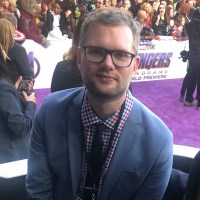When Call Jane premiered at the Sundance Film Festival in January, few could predict the film would take on greater significance when it was released in late October. With the abolishment of Roe v. Wade in the summer, the movie, about a woman (Spider-Man‘s Elizabeth Banks) in 1960s America seeking an abortion with help of an underground collective called the Janes, suddenly became all too topical in a dynamically changing cultural and political landscape.
Digital Trends talked with Call Jane‘s director Phyllis Nagy and British actress Wunmi Mosaku about why they wanted to make the movie, the challenges involved in tackling a hot-button issue with a bare-bones budget and tight shooting schedule, and what audiences will get out of the film post-Roe.
Digital Trends: What drew you both to Call Jane?
Phyllis Nagy (director): I was so interested in the chance to make a film about a collective, about a group of women who got together to solve a problem rather than be defeated by a problem or unduly traumatized by it. That was key, as was the opportunity to make a film that had a lightness of touch about a very serious subject. Those are the two things that really fascinated me.

Wunmi Mosaku (actress, Gwen): The incredible real-life women who are in the movie. I had no idea about them or the pre-Roe world. I was lucky enough to grow up in the U.K., where abortion was never a topic. It was incredible reading about these women, who took their own autonomy, health, and dignity into their own hands and helped a community of struggling women.
Call Jane is not just a story, it’s real. It’s not a tale. It’s real. I just couldn’t believe that it was possible that you could take something like abortion into your own hands.
What were some of the challenges for you in making this project?
Nagy: The usual for an indie movie: we had very little money to make a period piece and no time to produce it. We shot it on film in 23 days with a single camera. We had to be quite regimented and planned everything while also leaving room for the usual things that happen all the time on set. So that was very challenging. The schedule was challenging.
Wunmi, you’ve been in a lot of great things recently, from Lovecraft Country to Loki to His House. What was it about your character, Gwen, that appealed to you?
Mosaku: I really admired her strength. She acts like a mirror to the Janes. She’s not complacent. She’s very much someone who faces things head-on. And so she’s not afraid to say, “We’re not doing enough. We aren’t helping everyone who needs help. We’re helping the people who can afford it, which tend to be white women.”
I just love that she was bold and brave enough to stand up as the only Black woman in the room and call them out. They are amazing and wonderful but they are still flawed too.
Phyllis, how does this experience differ from your first directorial outing with Mrs. Harris and then your time as a writer for the Cate Blanchett film Carol?
Nagy: Well, Mrs. Harris had twice the budget that Call Jane had. With Mrs. Harris, I had to navigate a cast of well-known actors like Annette Bening, Ben Kingsley, and Ellen Burstyn. Call Jane has a lot of well-known actors as well like Elizabeth Banks and Sigourney Weaver, but they act as more of an ensemble. We had 35 or 38 days of production time on Mrs. Harris, so we were shooting two to two and a half pages a day as opposed to five or six pages a day for Call Jane.

Carol was different because we had more money than we had for Call Jane. It was a bigger production and I witnessed it as a writer instead of as a director. I had the luxury of, sitting around watching everything and, of course, having to do the usual rewrites because we lost a location. But it’s a very different experience, being a writer on a film versus directing it. You’re not responsible for making any of the decisions.
What do you want viewers to take away from Call Jane after they’ve watched it?
Mosaku: I want people to vote first and foremost. I want people to support abortion care networks like Planned Parenthood and grassroots charities and institutions that help women and girls gain and reclaim their dignity, autonomy, hopes, and dreams. I want people to not judge but instead to feel and empathize with women and girls who need abortion care.
Nagy: I’d be happy if viewers had a slight shift in perspective. I’d love it if the film showed them something they hadn’t thought about before and engendered empathy for what the women who have abortions go through.
Call Jane is currently playing in theaters nationwide.



